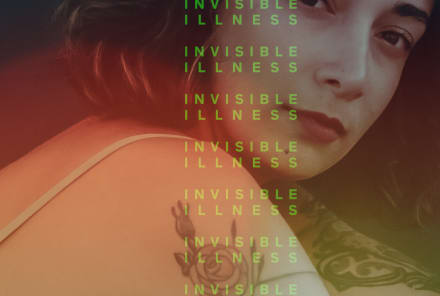Advertisement
The Surprising Truth About Relationship Deal Breakers


Once we've fallen in love, it's difficult for most of us to think as clearly as we might have prior to becoming attached to someone. We overlook the small things, which is good. But we can also ignore the large things—matters that, if closely examined, might mean the end of the relationship. These are called deal breakers.
A deal breaker is something about which partners feel passionately the opposite on, such as having children, religion, ethics and morals, extended family involvement, financial equality, where to live, and so on. These issues are not merely about where to put furniture or what to eat for dinner or how to brush your teeth (unless these dilemmas are symptomatic of a deal breaker). We can't say, "Just get over it and move forward" because neither partner feels moving forward is doable without making an unbearable concession.
Deal breakers can include sexual preferences and appetites. Some partners claim they cannot live without a daily diet high in sexual activity and variation, while others state they could live without sex altogether. Because relationships move through time, desire can change, sometimes radically, along with partners' ages, health, personal development, and other forces that affect libido and sexual performance.
I see partners encounter deal breakers in my clinic. It's not always pretty. One or both partners can end up feeling resentful. Their fights may focus on other matters, but the elephant in the room (that is, the deal breaker) may be the real source of their hostilities. Consider two brief examples, with differing outcomes.
Sephora and Jacob are in their mid-20s and considering engagement after dating on and off for several years. Both are Jewish, except Sephora is orthodox while Jacob is not religious. This difference continues to be a source of contention because Sephora expects to live a deeply religious life, while Jacob's commitment to orthodoxy is, at best, conciliatory. Because their opposing values direct their social interactions with others, their daily routines, and their lifestyles, they find it increasingly hard to picture a happy marriage. Eventually, Sephora can't get past this deal breaker and breaks up with Jacob.
Thad and Alia are engaged to be married. Both are successful businesspeople with financial stability. Thad is accustomed to a freewheeling lifestyle, while Alia was never seriously involved with anyone before and is not the adventurous type. A potential deal breaker arises when Thad insists on remaining free to explore sexual relationships, including threesomes with Alia. You might be tempted to fault Thad for his open-marriage lifestyle, yet his clarity is refreshing. It sets the stage for Alia to simply accept or reject Thad's offer. Alia decides she wants to marry Thad despite their differing values. Both know this potential deal breaker may come back to bite them, but they seem willing to ignore it. So they marry.
So the question arises: "Did these couples make the best decisions?"
My answer may surprise you. Let me start with a provocative statement: deal breakers are not the real obstacle for most couples. The main problem rests in our inclination to bend reality in order to avoid loss or even the anticipation of loss, or to kick the can down the road, so we don't have to face an unpleasant reality. For example, Alia may tell herself Thad will "get over" his desire for other lovers once they settle in, while Thad may think he knows how to make sexual exploration fun for Alia or that whatever Alia doesn't know about Thad's activities can't hurt her. This will be a problem down the road if, in fact, Thad doesn't actually change his desires or if Alia ends up feeling deeply hurt when she discovers Thad is keeping secrets.
I'm not saying partners should necessarily break up in the face of deal breakers. Thad and Alia may well be able to make it work. Even Jacob and Sephora might. What I am saying is that partners should take their deal breakers off the table before moving forward. By "off the table," I mean settle these matters squarely, soberly, and completely so neither partner is kicking the can down the road or bending reality to avoid the loss of the relationship.
This requires partners to form a secure-functioning relationship. It means being honest, forthright, and clear about who you are and wish to be, both inside and outside your committed relationship. From this basis of authenticity, you identify a purpose for the existence of your union and forge principles and agreements that reflect mutuality, shared power, and fairness. In other words, you are responsible as autonomous adults who balance and protect both personal and mutual interests. This in turn gives you a secure place in which to discuss any potential deal breakers.
For Jacob and Sephora, this would involve getting into the weeds with respect to how their beliefs translate into everyday actions and habits, as well as what they can and cannot accept from each other. For Thad and Alia, it would similarly entail examining their reactions to sexual scenarios they could face. The litmus test is that both partners agree that neither will resent nor blame the other down the road for having given something up. Of course, this may be impossible, and the result may be dissolution. Sad, yes, but there are worse things than the end of a relationship.
Despite our fears of loss, disappointment, and abandonment, reality is the safest mother. True secure functioning in a relationship means we accept our separateness, our misalignments, and our differences, while striving to create a more perfect union, based on reality, authenticity, and foresight. Couples who learn how to do this effectively will be pleasantly surprised to discover their deal breakers (not their relationship) dissolving before their eyes.
Watch Next
Enjoy some of our favorite clips from classes
Enjoy some of our favorite clips from classes
What Is Meditation?
Mindfulness/Spirituality | Light Watkins
Box Breathing
Mindfulness/Spirituality | Gwen Dittmar
What Breathwork Can Address
Mindfulness/Spirituality | Gwen Dittmar
The 8 Limbs of Yoga - What is Asana?
Yoga | Caley Alyssa
Two Standing Postures to Open Up Tight Hips
Yoga | Caley Alyssa
How Plants Can Optimize Athletic Performance
Nutrition | Rich Roll
What to Eat Before a Workout
Nutrition | Rich Roll
How Ayurveda Helps Us Navigate Modern Life
Nutrition | Sahara Rose
Messages About Love & Relationships
Love & Relationships | Esther Perel
Love Languages
Love & Relationships | Esther Perel











